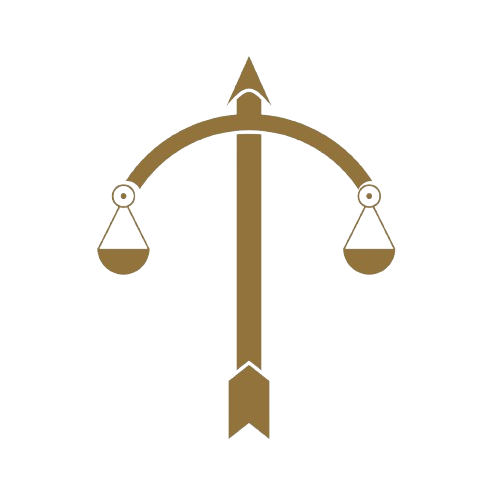The Fracturing of International Law: Why Nobody Can Agree on the Rules Anymore
The more courts that exist, the less enforceable the system becomes. We now live in a world where the same conflict can simultaneously constitute a war crime in The Hague, a lawful act of self-defence in one capital, and a human rights violation in Strasbourg, with no mechanism to reconcile these competing verdicts.
Here's a question that should be simple but increasingly isn't: when a government bombs a building, kills civilians in a raid, or detains suspected militants without trial, is it legal?
The answer, it turns out, depends entirely on which court you ask.
Welcome to the fragmented world of international law- a system that was never quite a system to begin with, but which has now splintered into something approaching legal chaos. For governments, corporations, NGOs, and journalists trying to navigate questions of accountability, compliance, and legitimacy, this fragmentation has become the defining challenge of our time.
When Courts Don't Talk to Each Other
International law has always lacked a neat hierarchy. There's no Supreme Court of the World. Instead, we have a patchwork: the International Court of Justice (ICJ) in The Hague handles disputes between states. The International Criminal Court (ICC) prosecutes individuals for war crimes and genocide. Regional courts- the European Court of Human Rights, the Inter-American Court, the African Court- adjudicate human rights violations within their jurisdictions. Then there are specialised tribunals for maritime disputes, trade conflicts, and arbitration panels for investment disputes.
Each operates according to its own mandate, its own procedures, its own interpretation of core legal principles like "self-defence," "proportionality," or "occupation."
The problem? They don't coordinate. They don't defer to one another. And increasingly, they don't agree.
As Yuval Shany of Hebrew University has documented extensively, courts adopt different approaches when cases overlap: some divide hybrid cases into separate matters, picking up only aspects within their jurisdiction—what he calls a "disintegration-friendly" approach. Others prefer an "integrationist" attitude, absorbing all elements of a case under their own jurisdiction. This fundamental divergence in judicial philosophy means that identical facts can yield dramatically different legal conclusions depending on which court examines them first.
What we're witnessing isn't just institutional rivalry- it's the emergence of parallel legal universes, each with its own gravitational pull, each claiming authority over the same events.
One Conflict, Five Different Legal Realities
Take any contemporary conflict- Ukraine, Gaza, Sudan, Myanmar—and watch how the fragmentation plays out in real time.
The ICJ might assess whether a state violated the Genocide Convention or breached its obligations under international humanitarian law. The ICC could issue arrest warrants for individuals accused of committing war crimes. A regional human rights court might condemn the same government for violations under a separate treaty framework. Meanwhile, domestic courts in various countries might rule on whether arms exports to the conflict zone are lawful under national legislation- potentially contradicting what international tribunals have found.
None of these judgments bind each other. Some actively conflict.
You can have a situation where:
A state is found not responsible by the ICJ for genocide
Yet its leaders face ICC arrest warrants for crimes against humanity
Whilst a regional court condemns the government's actions as human rights violations
And a domestic court in a third country upholds arms sales to that same government
As Philippe Sands noted before the ICJ in February 2024, whilst arguing for Palestine: "No one in this Great Hall of Justice is starry-eyed about international law, but it is what we have." This frank acknowledgement captures the tension at the heart of the system- a recognition that international law is imperfect, fragmented, and yet remains the only framework we possess for holding power to account.
This isn't a theoretical problem confined to academic journals. It's reshaping diplomacy, litigation strategy, and public discourse around accountability.
The Evidence Problem: When Standards Diverge
Fragmentation isn't just about different courts reaching different conclusions- it's about them applying fundamentally different standards of proof.
The ICJ requires clear attribution of actions to a state and evidence of specific intent for the most serious violations. The ICC demands proof beyond reasonable doubt for individual criminal liability—the standard used in criminal trials. Human rights courts often work with lower thresholds, accepting evidence that establishes "reasonable grounds to believe" a violation occurred. UN fact-finding missions might rely heavily on open-source intelligence, NGO reports, or witness testimony that wouldn't meet the standards of a formal court.
Then there are domestic courts, each applying their own constitutional or administrative law standards, which might be more stringent or more flexible than any international tribunal.
The result? The same military operation can be:
A war crime according to one forum
A lawful act of self-defence according to another
A human rights violation in a third
And not attributable to any state under the law of state responsibility
Dapo Akande, now a member of the UN International Law Commission and professor at Oxford, has spent years examining how different tribunals classify armed conflicts and attribute responsibility. His work on humanitarian relief operations and the classification of conflicts reveals just how divergent interpretive frameworks have become across international bodies. When basic questions like "what constitutes an armed conflict" or "who qualifies as a civilian" yield different answers depending on which tribunal examines them, the foundations of legal certainty begin to crumble.
For anyone trying to understand what actually happened, let alone what the legal consequences should be, this creates a dizzying level of complexity.
The Fact-Finding Free-for-All
Complicating matters further is the proliferation of investigative bodies, each producing its own narrative about conflicts and alleged violations.
You've got UN Commissions of Inquiry, UN Special Rapporteurs with thematic mandates, regional human rights mechanisms, civil society documentation projects, digital open-source intelligence collectives, and of course governmental or military investigations (which tend to exonerate themselves).
Each uses different methodologies. Each operates with different political constraints. Each makes different evidentiary assumptions.
When these competing narratives enter different legal forums, they generate what scholars now call "interpretive divergence"—the same set of facts yielding radically incompatible legal conclusions depending on which investigation a court relies upon.
For the Legal Integrity Project, this raises a critical question: if we can't agree on what happened, how can we possibly agree on whether it was lawful?
The Enforcement Gap: All Judgement, No Teeth
Perhaps the cruelest irony of this fragmented system is that the more courts we create, the less enforceable international law becomes.
The ICJ issues binding judgments—but has no police force, no enforcement mechanism. States comply when it suits them; ignore rulings when it doesn't. The ICC issues arrest warrants that depend entirely on whether states choose to cooperate. Some do; many don't. Regional courts frequently clash with domestic constitutional courts, leading to selective compliance or outright defiance. Domestic courts can issue rulings with major international ramifications- blocking arms exports, prosecuting foreign officials under universal jurisdiction- but foreign governments simply ignore them.
We've created a situation where legal authority is everywhere and nowhere- diffused across so many institutions that accountability becomes optional, a matter of political convenience rather than legal obligation.
Strategic Opportunities in the Chaos
For those operating in this environment—whether states, corporations, NGOs, or media organisations- fragmentation creates both risks and opportunities.
The risks are obvious: inconsistent rulings generate legal uncertainty, reputational exposure, and the constant threat of being blindsided by a judgment from an unexpected jurisdiction. Governments can face simultaneous, contradictory legal obligations.
But there are opportunities too. Multiple forums allow for sophisticated multi-layered strategies: securing an advisory opinion from one court, pursuing litigation in another, filing third-party interventions to shape emerging norms. States can strategically align themselves with the most authoritative—or the highest-threshold—forum to legitimise their position.
As Laurence Helfer of Duke Law School has argued, what's often dismissed as "forum shopping" can, if properly regulated, actually enhance the development of international human rights law. Rather than viewing the submission of petitions to multiple tribunals as purely problematic, Helfer suggests it may be "the only way that many aggrieved individuals can receive a complete review of the rights violations allegations in their petitions." The practice, in other words, isn't inherently illegitimate, it's a rational response to institutional fragmentation.
Organisations can use jurisdictional diversity to craft compelling legal narratives that might fail in a single, unified system.
The key is understanding the system as it actually functions: not as a pyramid of authority with clear rules, but as a network of overlapping, often competing institutions, each with its own logic and leverage points.
The Regime Complexity Problem
What we're witnessing is what political scientists call "regime complexity"- a situation where global governance operates through multiple, partially overlapping institutions with no clear hierarchy. Karen Alter of Northwestern University has been at the forefront of documenting this phenomenon, arguing that the signature feature of twenty-first-century international cooperation is not the international regime but the "regime complex"—an array of partially overlapping and non-hierarchical institutions.
Alter and her colleagues have shown that this complexity isn't merely a structural flaw—it's often intentional. Politicians choose to govern through "often incoherent and intentionally incomplete regime complexes" because fragmentation serves political purposes, allowing powerful actors to exploit inconsistencies whilst maintaining a veneer of commitment to the rule of law. The fragmentation, in other words, is a feature, not a bug—one that benefits those with the resources to navigate multiple forums simultaneously.
This has profound implications. If fragmentation is structural rather than accidental, then solutions focused purely on better coordination between courts may miss the deeper political economy driving the system's dysfunction.
Can This Be Fixed?
Realistically, fragmentation cannot be eliminated. The genie is out of the bottle—we're not going to dissolve dozens of courts and tribunals and start over with a single, hierarchical system. But fragmentation can be managed, made less chaotic, rendered more predictable.
What would that take?
Greater coordination between international courts—formal dialogue mechanisms, joint conferences, efforts to harmonise interpretive standards where possible.
Clearer delineation of mandate boundaries—so courts aren't stepping on each other's toes or overreaching into areas where they lack expertise.
Transparent evidentiary methodologies—particularly for fact-finding missions whose reports are then relied upon by courts with no ability to independently verify the underlying evidence.
Principles for resolving conflicts between jurisdictions—borrowing from conflict-of-laws doctrines that domestic legal systems have developed over centuries.
Frameworks to prevent weaponisation—ensuring that legal processes serve accountability and justice, not strategic political competition (the phenomenon critics call "lawfare").
Without such reforms, there's a real danger that international law becomes not a tool of accountability, but simply another arena for geopolitical contestation—where outcomes depend less on legal merit than on which forum you can access and which judges you can persuade.
Making Sense of the Mess
The fragmentation of international law isn't a bug—it's the defining feature of how global justice works in the twenty-first century. We don't have a cohesive system. We have overlapping jurisdictions applying divergent standards, producing competing narratives, with inconsistent enforcement mechanisms and no umpire to settle disputes between the umpires.
For policymakers, this means navigating a minefield where legal advice depends on jurisdictional strategy. For journalists, it means that claims about what's "legal" or "illegal" in international affairs are far more complicated—and politically contested—than they appear. For advocates, it means choosing forums carefully and understanding that justice in one court might be injustice in another.
The task for the Legal Integrity Project is to map this complexity honestly—to explain the system as it truly exists, not as we might wish it to be. Because only by understanding the fragmentation can we begin to work within it, around it, and eventually, perhaps, to repair it.
The international legal order is fractured. The question now is whether we can learn to navigate the cracks—or whether the whole structure will eventually collapse under the weight of its own contradictions.

